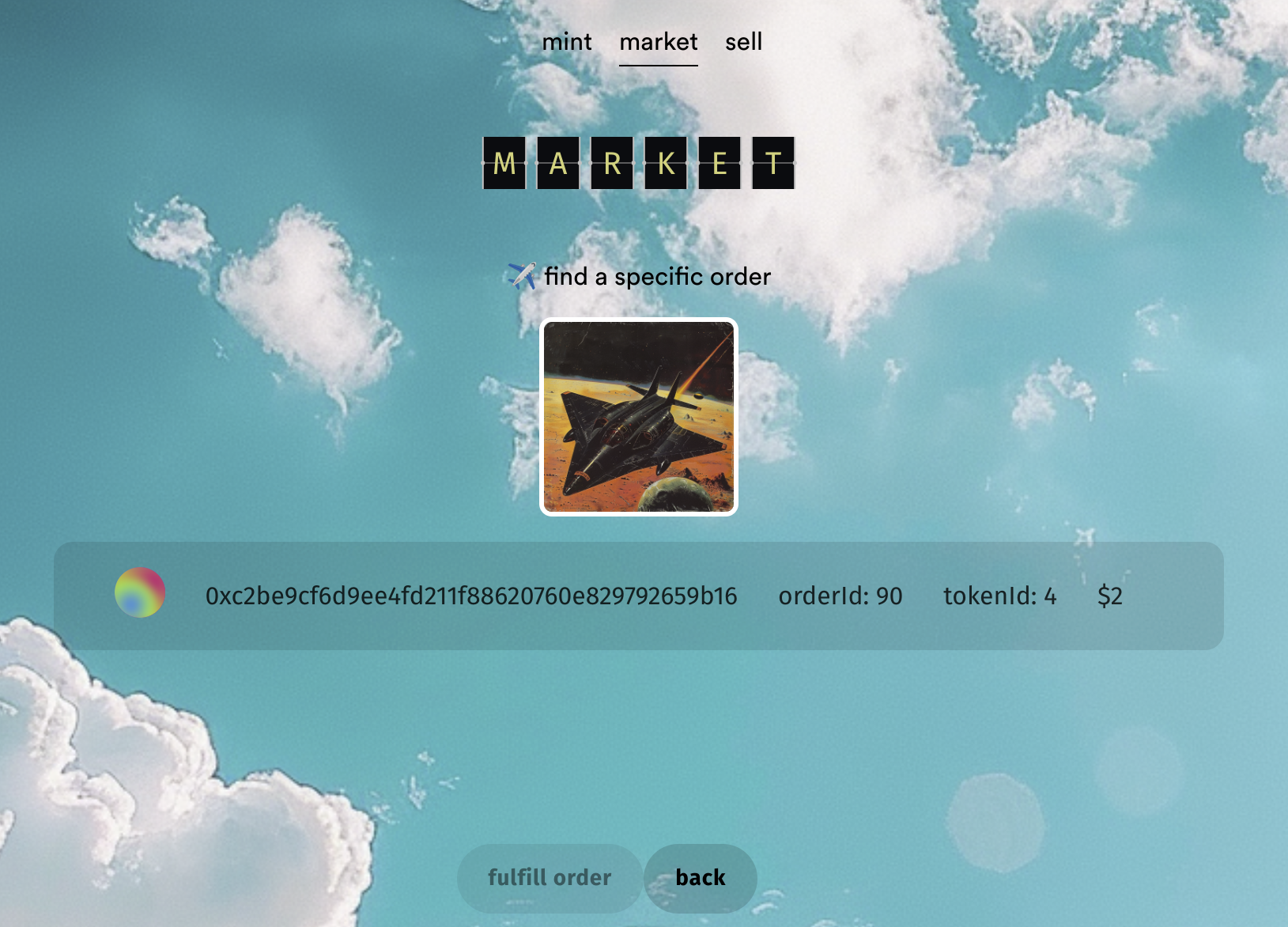GetOrderbookOrders
With the use of the GetOrderbookOrders api developers can build custom marketplaces around the api, as an example, one can implement a frontend to fulfill certain orders (not just the best price) for a collectible

Example
GetOrderbookOrders of token ids from a collection address on Sepolia:
cURL
curl --request POST \
--url https://marketplace-api.sequence.app/arbitrum-sepolia/rpc/Marketplace/GetOrderbookOrders \
--header 'Content-Type: application/json' \
--data '{
"collectionAddress": "0x1693ffc74edbb50d6138517fe5cd64fd1c917709",
"currencyAddresses": [
"0xa9c88358862211870db6f18bc9b3f6e4f8b3eae7"
],
"filters": {
"isListing": true,
"tokenIds": [
"0",
"1",
"4",
"5"
]
},
"orderStatuses": [
"OPEN","CANCELLED"
],
"page": {
"sort": [
{
"column": "createdAt",
"order": "ASC"
}
]
},
"orderbookContractAddress": "0xB537a160472183f2150d42EB1c3DD6684A55f74c"
}'Schema
Query the protocol for orders based on various filters.
Sequence Orderbook GetOrderbookOrders Method:
- Request: POST /rpc/Marketplace/GetOrderbookOrders
- Content-Type: application/json
- Body (in JSON):
orderbookContractAddress(string) -- the address of the protocol contractcollectionAddress(string) -- the address of the NFT collectioncurrencyAddresses(string[]) -- an array of currency contract addressesfilters(OrderbookOrderFilter) -- filters to apply to the querytokenIds(string[]) -- the token ids of the assets you're looking atisListing?(bool) --trueif it is an order,falseif it's an offeruserAddress?(string) -- the address of the user
orderStatuses(OrderStatus[]) (optional) -- filter orders by their statuses asOPEN,CLOSED,CANCELLEDstringsmetadataFilter(Filter) (optional) -- filter orders by metadatatext?(string) -- text to searchproperties?(PropertyFilter[]) --name(string) -- name of the property, eg: herotype: (PropertyType) -- type of the values of the property as an enum from:"INT","STRING","ARRAY", or"GENERIC"min?: (int64) -- used if type is int, gives range of values for filteringmax?: (int64) -- used if type is int, gives range of values for filteringvalues?: []any -- if string then array of values, eg: ["Ada", "Ari", "Axel", "Banjo" ...]
beforeExpiryTimestamp(int64) -- filter orders expiring before the given timestamppage?-- page object to sort bysort(Sort[]) -- with an object of keys"column"and"order"with example"createdAt"and"ASC", respectively
- Response (in JSON):
pagepage(i32) -- number of the pagepageSize(i32) -- number of orders on the pagemore(bool) -- if there are more orders
orders(OrderbookOrder[]) [orderId(string) -- order idtokenContract(string) -- the collection contracttokenId(string) -- the tokenId of the collection in the orderisListing(bool) -- is true if it's a listing for sale, or false if it's an offerquantity(string) -- the number of tokens the order is forquantityRemaining(string) -- the number of tokens after the ordercurrencyAddress(string) -- the currency the token is trading inpricePerToken(string) -- the price per tokenexpiry(string) -- the expiry of when the order is no longer validorderStatus(OrderStatus) -- the status of the order as an enum fom"OPEN","CLOSED","CANCELLED"createdBy(string) -- the address the order was created bycreatedAt(uint64) -- the time the order was createdorderbookContractAddress(string) -- the orderbook contract address ]

